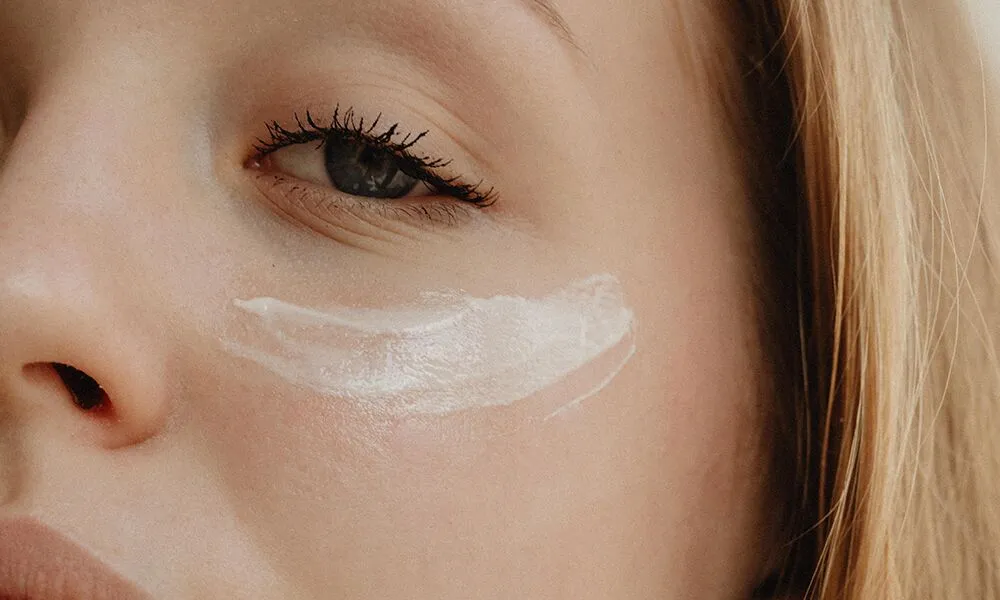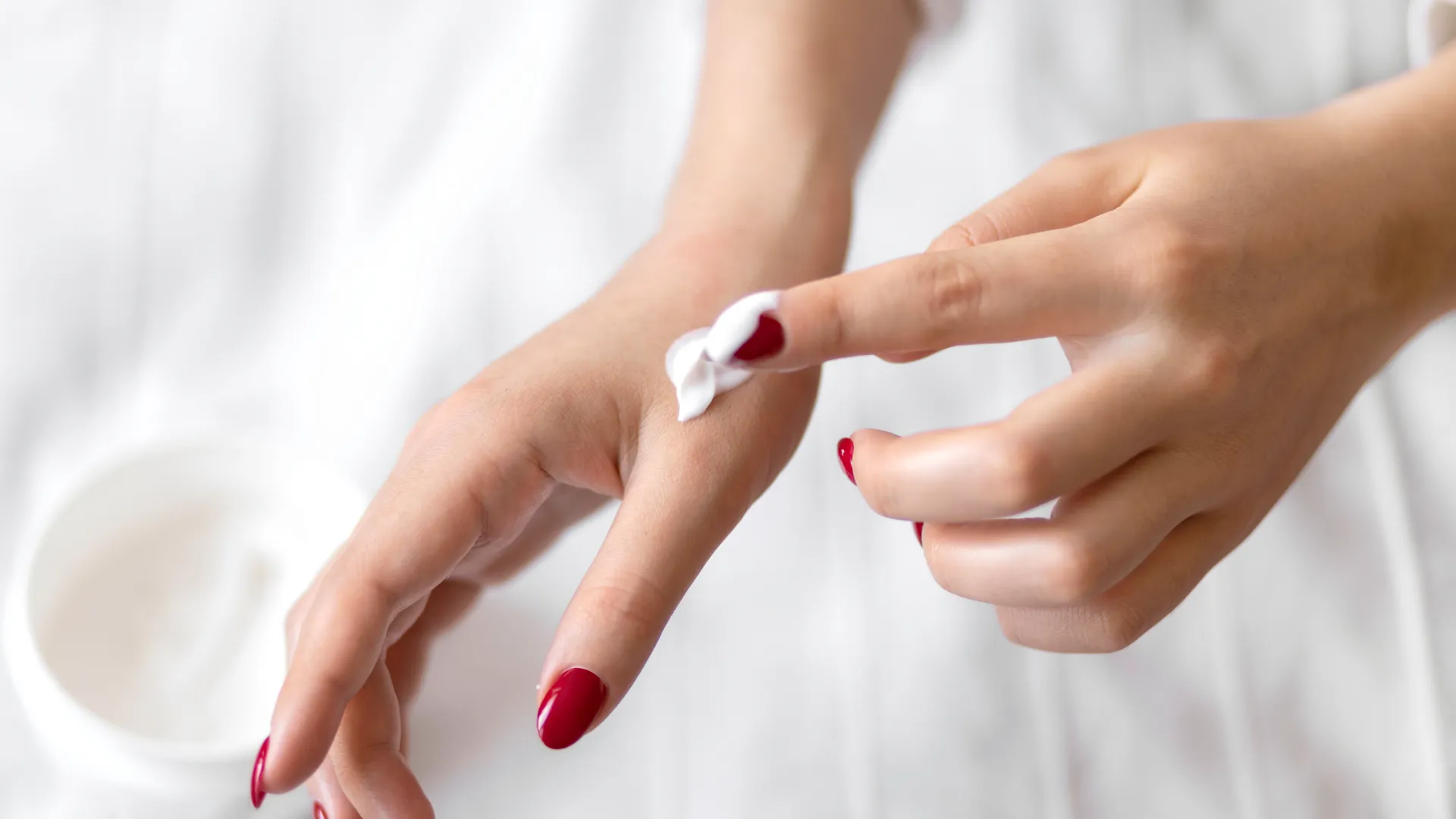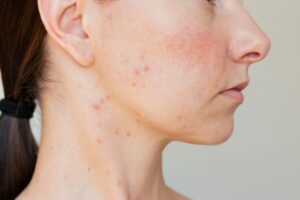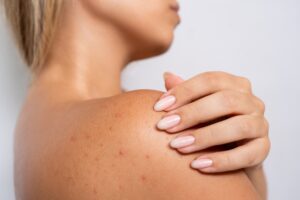Dandruff and itchy scalp are medical conditions known as seborrheic dermatitis. This condition is very common in men, affecting up to 50% of all adults. It is caused by skin inflammation triggered by an excess of oil (sebum) and the overgrowth of normally-occurring yeast (Malassezia species) on the scalp and other skin areas commonly affected by this condition.
These two factors, excess sebum and yeast overgrowth trigger an immune response that appears on the skin as a red rash, flaky dandruff, and itching. Seborrheic dermatitis most commonly involves the scalp, but other high oil/sebum areas such as eyebrows, around the nose, behind the ears and inside the ear canals, and the mid-chest can also be affected.
Many men have an increased tendency to have dandruff symptoms if they skip washing their hair every day and/or sweat a lot during exercise and times of emotional stress. This makes itching and dandruff worse.
One trick to control dandruff is to increase the frequency of hair washing (daily hair washing may be necessary) and to use an anti-yeast shampoo such as Nizoral 1% or 2% shampoo which contains ketoconazole. Other dandruff shampoos including Neutrogena’s T Gel Shampoo (which contains tar) and Head and Shoulders (which contains pyrithione zinc) are also effective. Of note, the tar ingredient in T Gel shampoo is photosensitizing and causes skin to sunburn more easily after contact.
If scalp itching persists despite the above recommendations, applying a few drops of prescription-strength cortisone solution to the scalp (eg, fluocinolone 0.1%) after shampooing can be very helpful. It is important to remember that seborrheic dermatitis is a condition that can be effectively controlled, not necessarily cured. Grooming (daily hair washing) and the use of effective dandruff shampoos will achieve the best results.






